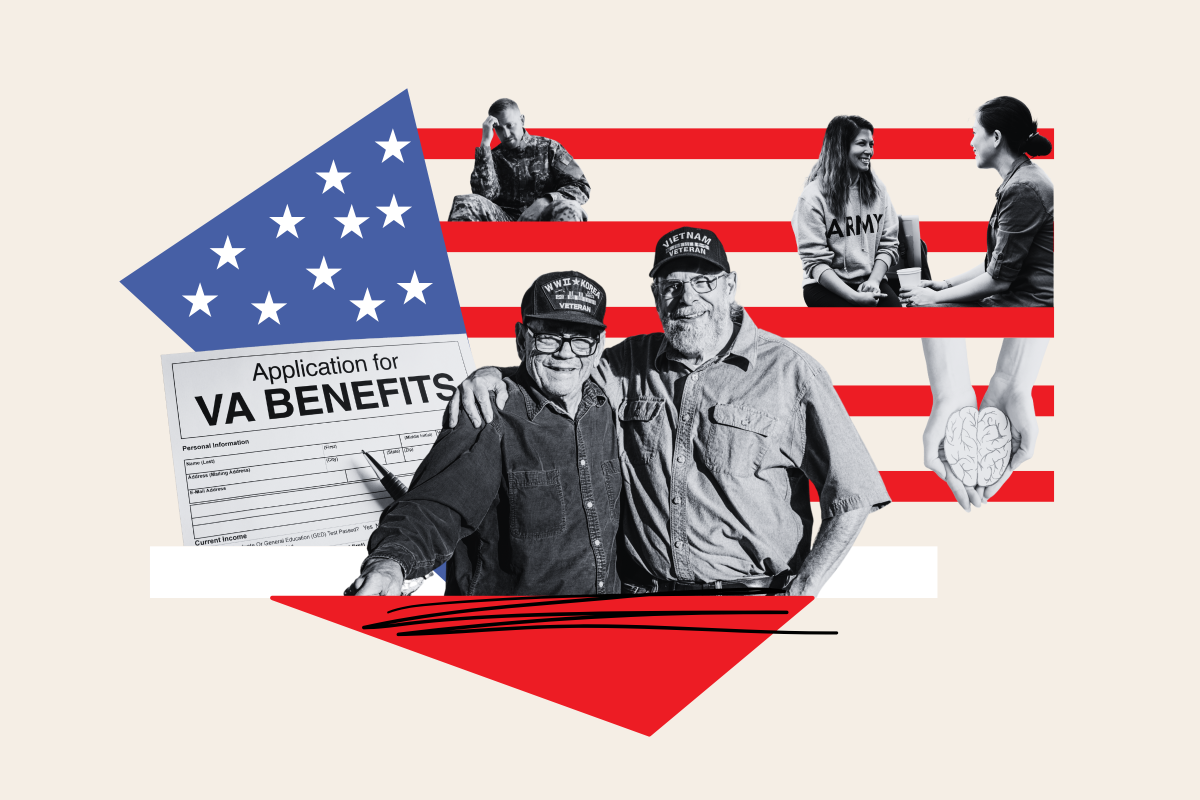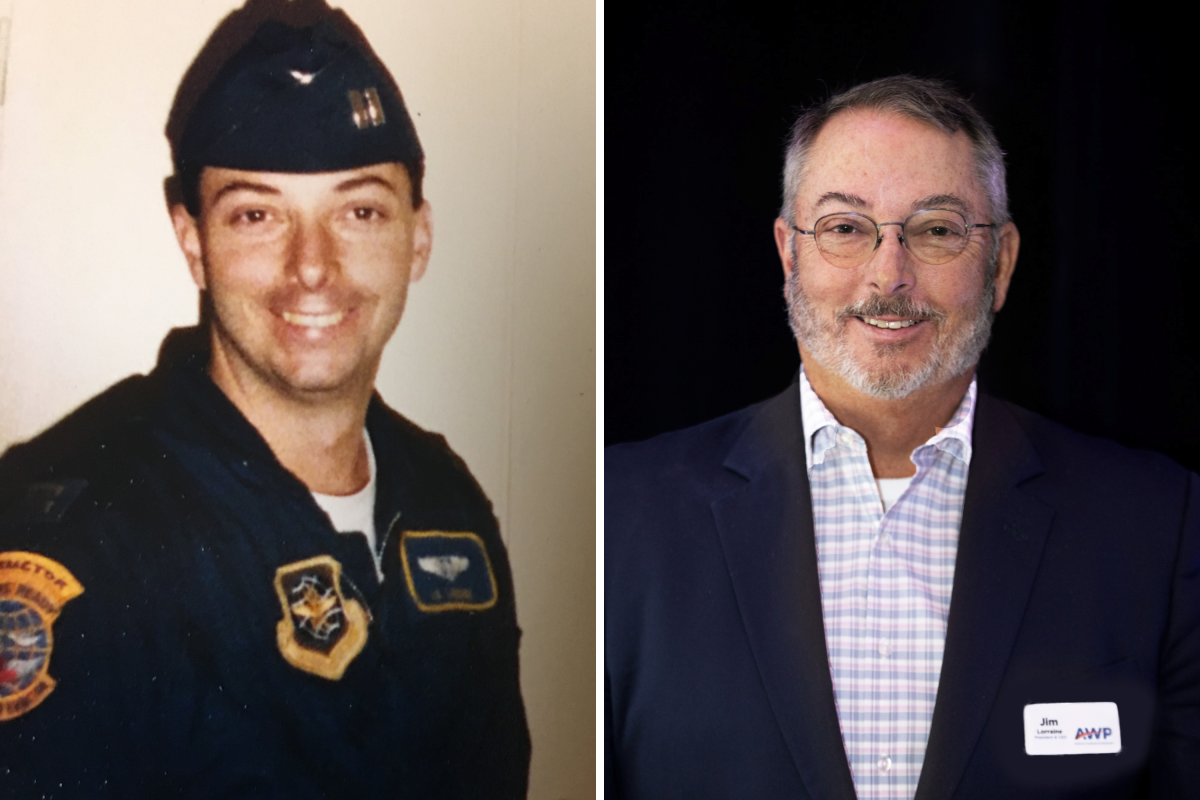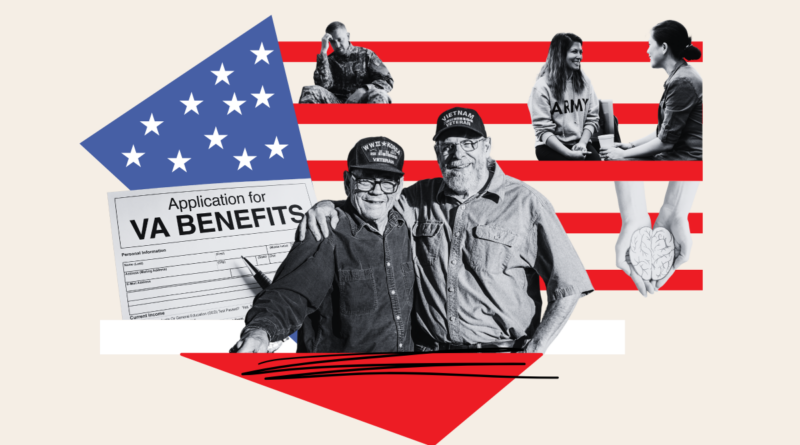The group provides “hope” to veterans struggling with mental health
America’s Warrior Partnership (AWP) has helped many soldiers to get access to mental health and other resources, to provide “hope,” as the leader of the non-profit organization puts it. Newsweekto those re-entering public life, some of whom may be struggling with post-traumatic stress disorder (PTSD) and depression.
This past week, the US Department of Veterans Affairs (VA) asked veterans to talk. Veterans and their families are encouraged to commit to talking to 10 veteran friends during Veteran Buddy Check-In Week.
According to the RAND Corporation, a research and analysis nonprofit aimed at improving policy and decision-making, one in five veterans from the wars in Iraq and Afghanistan experience PTSD or major depression.
In 2021, suicide was the 13th leading cause of death among veterans overall, and the second leading cause of death among veterans under the age of 45, according to the latest data from the VA.
There were a total of 6,392 suicide deaths in 2021, 114 more than in 2020, the 2023 National Veteran Suicide Prevention Report said. Guns were more likely to be involved in suicides than non-suicides in 2021, according to the annual report.
AWP, whose mission is to prevent veteran suicide by connecting veterans with the resources they need, has helped nearly 61,000 veterans since 2014. This past year alone, AWP connected veterans 8,000, about 3,000 of whom were struggling with suicidal thoughts. The nonprofit has helped 315 veterans struggling with suicidal thoughts so far this year.
“What we’re trying to do is get more veterans to know who we are—just to reach out and say, ‘Hey, can you help me?’ And I always say, you never help anybody you don’t know,” Jim Lorraine, AWP president, said. Newsweek by phone on October 20.

Photo by Newsweek/Canva
Lorraine served 22 years in the US Air Force as a lieutenant colonel. He was a flight nurse with nine combat squadrons and retired as assistant surgeon general of the United States Special Operations Command. Lorraine is one of many veterans who have battled PSTD.
She does not see her experience with PSTD as a disability but as something that has strengthened her.
Lorraine said: “I can tell you that my experiences that affected me in the end made me who I am. “It made me the leader of America’s Warrior Partnership, it made me drive the organization to say, ‘How can we do better than this? How can we help people? How can we connect them with the resources to give them? ‘we have to fight the unknown?’
People at AWP not only meet veterans and the resources they need, but build lasting relationships with them, or as Lorraine says, “we stick with them.”

Jim Lorraine
Problems Related to Re-entering Community Life
Re-entering civilian life can be a difficult transition for veterans that can lead to physical problems such as financial problems, food insecurity and homelessness.
“When you join the military, you take anywhere from six months to a year to socialize … you trust the person on your right and on your left and you’re very focused and focused as a result of the time you are given guidance on where to go and what to do every day,” Lorraine explained.
He said that when you leave the military, unless you have close relationships with others, “you can feel alone, you can feel like you don’t fit in, that people don’t like you understand. And you don’t. get this in a cocoon, you get kind of pushed out and it’s like, ‘Here’s the world.’ .
Lorraine said that 94 percent of the fighters who were identified by the AWP as having suicidal thoughts “did not come to us for psychological or moral help. benefits, they needed to get VA health care, they lack transportation.”
‘Focused on Hope’
When asked what other mental health problems veterans face besides PTSD, Lorraine said, “I think depression. So, one of the things we do at America’s Warrior “Partnership means focusing on hope,” he added, adding that “lack of hope is related to suicide.”
AWP looks at suicide prevention in a holistic way that includes help with housing, work, education, relationships, access to services that improve your life, give you the opportunity to give back to your community and lead again,” Lorraine said. .
“That raises confidence, which ultimately reduces suicide,” he said.
#group #hope #veterans #struggling #mental #health
